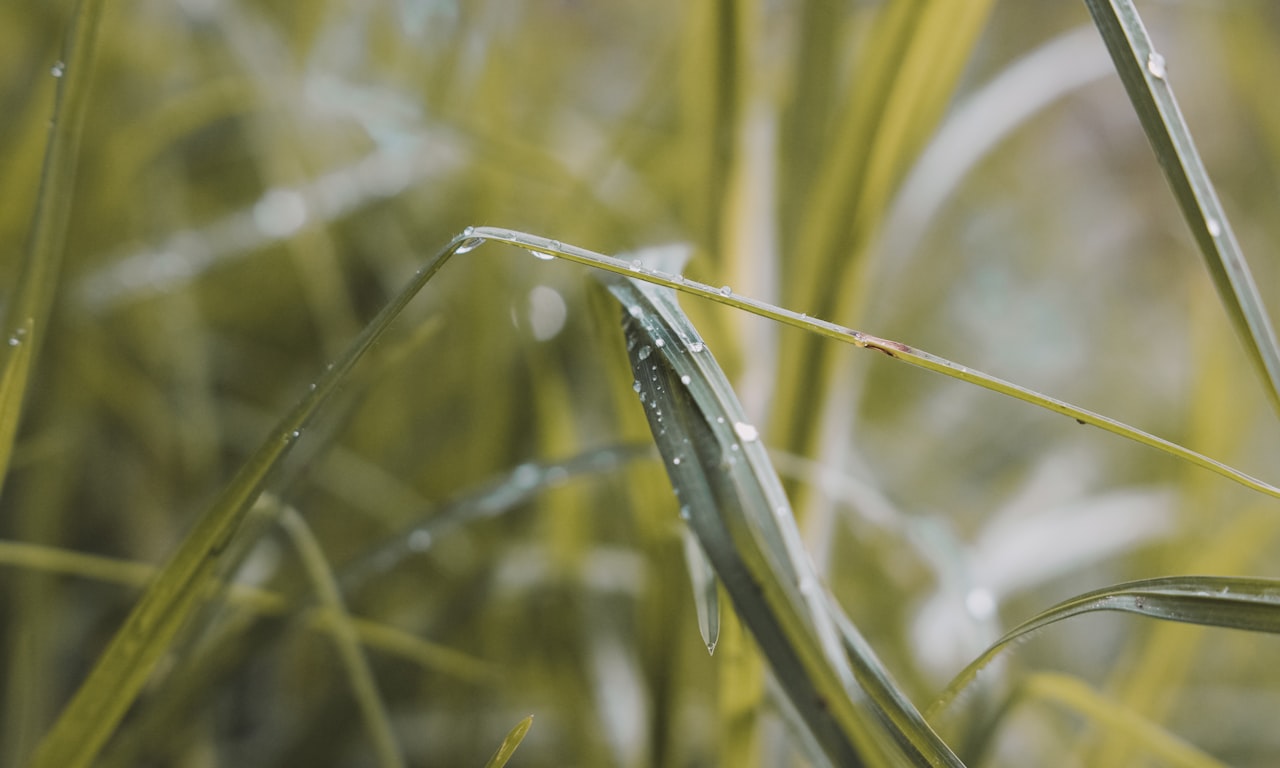Key Takeaways
Mulching, hand weeding, and cultivation are effective techniques for controlling weeds in natural farming. Natural mulching obstructs sunlight and stops weed seeds from sprouting, even as also helping in retaining soil moisture. Hand weeding includes whole elimination of the weed, consisting of its roots, and ought to be executed whilst weeds are small to prevent competition with vegetation.
cowl cropping suppresses weed increase through opposition for mild, vitamins, and space, at the same time as additionally enhancing soil structure and improving water retention. Soil fitness is vital for controlling weeds in organic farming, as healthful soil creates an surroundings less favorable for weed increase. Enforcing integrated pest manage (IPM) principles and using herbal enemies and organic manipulate strategies are important for comprehensive weed management in organic farming.
Key Points
- Mulching is effective for weed suppression
- Hand weeding and cultivation are key
- cover cropping suppresses weed growth
- Soil fitness is critical for weed control
- complete approach to weed manage
- herbal enemies resource in weed control
Let’s get started!
Mulching: A superior method for Suppressing Weeds in organic Agriculture
natural mulching, a broadly embraced technique, is especially powerful inside the warfare towards weeds in organic farming. There are numerous forms of natural mulch that may be hired, including straw, wood chips, and grass clippings. Each variety of mulch possesses its own distinct advantages and concerns for implementation. Mulching is a powerful method of inhibiting weed increase, as it obstructs daylight and stops weed seeds from sprouting. Furthermore, organic mulch aids in preserving soil moisture, that is conducive to the flourishing of flora. Whilst using mulch for weed manage, it is vital to adhere to satisfactory practices to make sure its efficacy. This includes well getting ready the soil, applying the mulch at the proper juncture, and upholding the mulch layer for the duration of the length of the growing season.

techniques for the control of Weeds in organic Farming
one of the most crucial aspects of natural farming is the management of weeds with out the usage of chemical herbicides. Hand weeding and cultivation strategies play a critical function in achieving this purpose. The usage of proper gear and system is important for powerful weed manipulate in organic farming. These tools encompass hand hoes, weeders, and hand forks, that are designed to get rid of weeds without causing excessive disturbance to the soil. Moreover, these equipment are ergonomically designed to reduce pressure on the farmer’s frame at some point of long hours of weeding.
effective Hand Weeding strategies
when undertaking hand weeding, it is essential to make certain the complete elimination of the weed, consisting of its roots, to save you regrowth. Weeds should be removed whilst they may be small to prevent them from competing with vegetation for vitamins and sunlight. Proper technique includes getting as close to the base of the weed as feasible and pulling gently but firmly to ensure the complete plant is uprooted.
Cultivation methods for Weed manipulate in natural Farming
along hand weeding, organic farmers utilize numerous cultivation methods to manipulate weeds. Shallow cultivation with tools like harrows and rotary hoes disrupts weed growth without bringing new weed seeds to the floor. Mulching is every other powerful method, developing a barrier that forestalls weed seeds from germinating while also keeping soil moisture and temperature. Cover crops also can be used to outcompete weeds for space and vitamins, thereby reducing the need for hand weeding.
Controlling Weeds in organic Farming through cowl Cropping
cowl vegetation play a critical role in natural farming by means of suppressing the increase of weeds through opposition for light, vitamins, and space. They’re vital for keeping a healthful and efficient crop without using artificial chemicals. Exclusive varieties of cover plants, including legumes, grasses, and brassicas, may be used for weed suppression, every offering unique advantages for the general health of the farm.
kinds of cover crops for Weed Suppression
Legumes like clover and vetch are popular choices for weed suppression as they’ve the ability to restore nitrogen and outcompete weeds. Grasses including rye and oats form dense canopies that smother weed boom, whilst brassicas like mustard and rapeseed launch biofumigants that inhibit weed seed germination.
benefits of cover Cropping in organic Weed control
aside from suppressing weeds, cover crops also contribute to organic weed manipulate with the aid of improving soil structure, increasing microbial activity, and enhancing water retention. Additionally they provide habitat for useful insects and natural world, creating a balanced atmosphere inside the farm.
excellent Practices for imposing cowl plants for Weed Suppression
a success implementation of cowl crops for weed suppression entails carefully deciding on species, planting and terminating them at the proper time, and integrating them with crop rotation. Utilizing numerous cowl crop combos can also maximize the benefits of weed suppression and typical soil health in organic farming systems.

Weed manipulate in natural Farming: A guide to Soil fitness
making sure the health of the soil is of maximum importance in terms of controlling weeds in natural farming. By using retaining the properly-being of the soil, farmers can create an environment this is much less favorable for weed increase, ultimately reducing the need for chemical interventions.
using Soil Amendments for Weed Suppression
organic farmers have a ramification of soil amendments at their disposal to suppress weed boom. These encompass mulches, cowl plants, and compost. Those amendments not most effective help to smother weeds, however also create destructive situations for weed seed germination. Additionally, they improve soil shape, making it extra challenging for weeds to establish themselves.
The function of Crop Rotation in Weed management
Crop rotation is a vital method for weed management in natural farming. By rotating plants, farmers can disrupt the existence cycles of weeds, in the end decreasing weed pressure and improving usual soil fitness. Moreover, sure vegetation can suppress weeds via their allelopathic outcomes, presenting additional help for weed management.
Controlling Weeds in natural Farming: A comprehensive technique
in the realm of organic farming, the art of weed control is a multifaceted enterprise that calls for a deep know-how of included Pest control (IPM) concepts. This holistic method takes under consideration the intricacies of weed biology, ecology, and the influence of cultural practices on weed proliferation. By way of delving into those standards, farmers can craft powerful techniques for weed control at the same time as minimizing reliance on synthetic herbicides.
implementing a Holistic approach to Weed control
implementing IPM techniques for weed manage entails a harmonious blend of cultural, mechanical, and biological techniques to manage weed populations. This may embody practices which includes crop rotation, mulching, and using cover crops to stifle weed increase. By weaving together these techniques, farmers can diminish their dependence on chemical herbicides and foster a extra sustainable approach to weed management in natural farming.
The role of natural Enemies and organic manipulate
within the realm of organic farming, natural enemies and organic manage play a pivotal role in curtailing weed populations. This could entail introducing beneficial bugs, such as predatory beetles or parasitic wasps, to aid in weed control. Moreover, the usage of allelopathic plants and microbial marketers also can prove powerful in suppressing weed increase with out the want for synthetic herbicides.
FAQs about Controlling Weeds in Organic Farming
What is the most effective method for suppressing weeds in organic farming?
The most effective method for suppressing weeds in organic farming is natural mulching. This method obstructs sunlight and prevents weed seeds from sprouting, while also aiding in preserving soil moisture.
What are some effective hand weeding strategies?
Effective hand weeding involves ensuring the complete removal of the weed, including its roots, to prevent regrowth. Weeds should be removed when they are small to prevent them from competing with plants for nutrients and sunlight.
How do cover crops help in weed suppression in organic farming?
Cover crops suppress weed growth through competition for light, nutrients, and space. They also contribute to organic weed control by improving soil structure, increasing microbial activity, and enhancing water retention.
What role does soil health play in controlling weeds in organic farming?
Ensuring the health of the soil is of utmost importance in controlling weeds in organic farming. By maintaining soil health, farmers can create an environment that is less favorable for weed growth, ultimately reducing the need for chemical interventions.
What is the comprehensive approach to weed control in organic farming?
The comprehensive approach to weed control in organic farming involves implementing integrated pest control (IPM) principles, which take into account the intricacies of weed biology, ecology, and the influence of cultural practices on weed proliferation.
What is the role of natural enemies and organic control in weed management in organic farming?
In organic farming, natural enemies and organic control play a pivotal role in curtailing weed populations. This could entail introducing beneficial bugs, such as predatory beetles or parasitic wasps, to aid in weed control.


